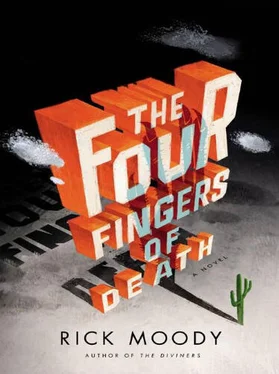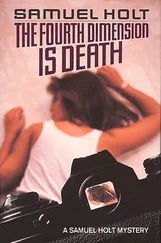McClintock then, you may remember, tried to corner the market on his own baseball card. He had an army of middle schoolers, his biggest fans, buying them up. But there was one ruthless competitor who was able to thwart his evil plans . Well, I did adore the McClintock card, and the McClintock legend, and the fact that I hoarded his first card left me in a rather good position when I later opted for my present variety of self-employment. It turned out I wanted nothing more than to sit around talking to walleyed kids about who was the greatest disabled player in sports history. Oh, and did I neglect to mention that I later cajoled a haggard and hungover McClintock into signing twenty or so cards for me? At a convention? He made idle conversation, noting among other things that this was his third titanium arm, though he did nothing more strenuous with it in those days than go fly-fishing. His signature was kind of wobbly.
This, therefore, is my business. It was here, at the flea market, according to my wife’s plans, that I screwed up my nonexistent courage one Sunday and said to Noel Stroop, who was busy selling software modules, something called a compact disc, and e-book files, “Hey, Noel, what does a guy like me, a literary innovator, have to do in this town to get some respect?”
Perhaps you’re wondering what I have done to merit such a high opinion of my legacy. What is the nature of the Montese Crandall literary innovation? I am going to take the remainder of this brief introduction to explicate fully my response to this question. Let me then throw down the gauntlet and remark that I, Montese Crandall, MFA, write very short, very condensed literary pieces, and by short, I mean very, very short. Shorter than you have probably read in your reading life. More than one word, usually, because one word is too easy, but quite a bit more modest than five score. The three hundred and fifty pages of a novel, according to the argument I am wont to advance, are tedious elaboration. As I understand it, death, war, and adultery are the major novelistic themes, and these were all dispensed with well before Christ got nailed to his block of wood. The nineteenth-century novel, you opine? The nineteenth-century novel does have it all: attic-dwelling harridans; uncanny coincidences; advantageous marriages to strong, silent landowners; orphans; revolutions; whaling. You can’t go wrong with the nineteenth-century novel. But much that has been written since amounts to imitation, barely warmed over by writers with strange grammatical inclinations. Lovelorn women of Canada, incest on the Southern plantation, drug-using editorial assistants, the usual stuff. Yours truly, Montese Crandall, living out his pacific middle age in a college town next door over to nowhere at all, is unwilling to add more roughage to this rich diet.
One thing the late twentieth century was good at, besides its mass-marketing: paring away. Omitting needless words. Alluding. Without overstating. Dust bunny under radiator. Cockroach on window blind. Scotch bottles. Heartbreak in the food court. Impotence. Subdivisions. Melanoma. Muffler problems. Upon the advent of the digital age, as you know, writers who went on and on and on just didn’t last . You couldn’t read all that nonsense on a screen. Fragmentation became the one true way. Fragmentation offered a point-and-click interface. Additionally, this strategic reduction blurred the line between poetry and prose, which is where I, Montese Crandall, come into the story. I, Montese Crandall, rely heavily on such strategies as alliteration, condensation, the strange, ghostly echo of metrical feet, iambs and dactyls, spondees and amphibrachs. For example, here’s a pair of amphibrachs (unstressed, stressed, unstressed) that might very well summarize my entire output: romantic objective . The phrase does have a fine euphony.
My first groundbreaking and innovative one-sentence story occurred in the following way. I’d been working on a forty-five-page erotic novella that was loosely based on my boundless physical desire for my wife, Tara Schott Crandall. The sequence in which I performed a certain advanced delight upon her delicately canted pelvis ran well over twenty pages, and her mews and snorts of transport, as described in the text, would pierce the waxy consciousnesses of neighbors up and down the block. Her cries of delight, as described therein, were likened to the coyote howling on the mesa, the kettle shrilling on the stovetop. Sopranos in local opera companies would hang their heads, for they knew that when Tara Schott Crandall climaxed, they were out of a job.
I am afraid I cut the entire passage. The erotic part. And not only that. Then I cut the opening. And the ending. I cut a lot of the middle. I cut the part where we were postcoitally sharing a glass of vin ordinaire . Next, I cut the astoundingly tender moment in the story where, in snappy dialogue, Tara and I revisited our assignations past: the time in the back of a minivan, the time in the woods when we got poison ivy, the time in the press box at the basketball game. For a while, a single scene remained in which the Tara character (called “Serena” in this early draft) sent me out, after lovemaking, for eggs. Eggs! So beautiful! So fecund! Likely to balance on their oblong points during the equinoxes! Symbols of fertility! Available in multiple sizes including jumbo! I couldn’t let go of this scene for a while. You know how this is. And yet after three months of wrestling with that story, I cut the entire tangle of misbegotten sentences, the whole sprawling mess, or almost all of it, leaving none, at last, but the following:
Go get some eggs, you dwarf.
I don’t expect everyone reading this introduction to see immediately the merit in this sentence. And yet the awakening, the unfolding, that occurred to me after a relaxed consideration of the six words that remained of my longer work, this unfolding located itself in the fact that the more I read and reread the sentence above, the better I liked it. I printed it out in various fonts. I pulled my few remaining hairs out, trying to decide whether to cut the word go . I pronounced the entirety of the story aloud to myself while walking from our ramshackle subdivision to the shipping offices where I then occasionally pulled a shift. I would intone the sentence while going past the shuttered health and beauty aids purveyor on Twenty-second and Mountain. I would say it while taking my number at the woebegone post office on Sixth. I shouted it at the beckoning doors of the gay bars on Fourth Avenue, I said it to myself at the food co-op, as if the eggs in question were an actual part of my shopping agenda. I can’t tell you how long it took me, in my ecstatically creative state, to realize that, in fact, there needn’t be an exclamation point at the end.
My wife, whose health situation had taken a rather unsettling turn, never approved of the long version of the story, though she generally supported whatever wind blew me along in my compositional hobbies, as long as I took seriously the post-compositional portion of the writer’s life and got out there to sell, sell, sell. She did, however, enjoy “Go get some eggs, you dwarf.” Where, my wife inquired, was I going to publish this story? Was I going to pit against one another some nationally recognized periodicals? And what about book publication? Had I considered a run of hardcovers? In fact, I had secured an agreement with a little web periodical called Mud Hut , where my story got an entire page to itself. No title. No byline.
Not six months later, fresh from the victory just described, I came up with what I like to think is the second-finest narrative I’ve ever composed. And yet before I type out for you that magnificence, I should describe what I look like, because it bears on the interpretation of this second effort. I am, you should know, in my late forties or thereabouts, and it is simply being honest to note that my metabolism, which was doing wind sprints and stomach crunches throughout the dark ages of my twenties, has lately taken an ill-advised nap. I am now the site of an unmistakable sag, as if some avalanche stirred at the crest of my solar plexus and sent all the flab in my northern latitudes down toward my once noble pubic swell. With fancy holographic belt buckles do I attempt to restrain my stampeding softness. In vain. Additionally, my hair is thinning, and my skin, which once had the virtue of being free from the blemishes that trouble the young, is now mottled and flaky. Burst blood vessels lead the eye of any observer astray around my nose. I am yoked to bifocals for my ocular needs. (I cannot afford the surgeries that would correct me.) I have fallen arches, hammertoes. My only virtues, as a physical specimen, are my sideburns, which are like the pelts of rare woodland animals. My sideburns are not to be ignored.
Читать дальше












